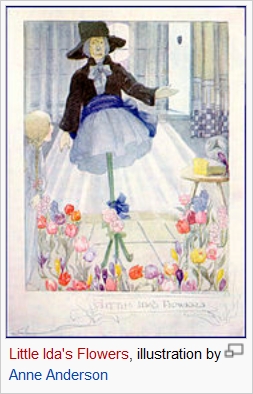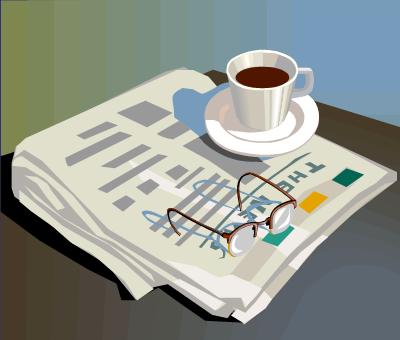"Zero Interest by the Fed"
What it's really worth...
by Dean Hazel
 Editors Note: Dean's article goes into a lot of related description of the nature and operation of the Federal Reserve System (Fed), which is extremely timely considering the federal government's commitment of taxpayer funding to insider financial interests on the order of $13 trillion. Please refer to my review of the movie Inside Job a few weeks ago, along with my column this week paraphrasing G. Edward Griffin's (Creature from Jekyll Island) description of the Mandrake Mechanism—i.e. how the government expands the money supply, disconnected from real goods and services, to benefit its friends closest to the counterfeiting machinery. Editors Note: Dean's article goes into a lot of related description of the nature and operation of the Federal Reserve System (Fed), which is extremely timely considering the federal government's commitment of taxpayer funding to insider financial interests on the order of $13 trillion. Please refer to my review of the movie Inside Job a few weeks ago, along with my column this week paraphrasing G. Edward Griffin's (Creature from Jekyll Island) description of the Mandrake Mechanism—i.e. how the government expands the money supply, disconnected from real goods and services, to benefit its friends closest to the counterfeiting machinery.
The figure at right is from the Wikipedia article on Hans Christian Andersen's the Emperor's New Clothes.
Mr. Hazel mentions the famous story in connection with how a child can see the truth of the Fed destructive policies, but adults don't want to admit it.
Zero Interest by Fed:
What's it Really Worth? (excerpt)
Are they helping us or hurting U.S.? They are no less than federally chartered private for profit national banks, by a 1913 act of Congress called the Federal Reserve Act. They are and have always been owned by their member banks, many which are foreign owned and more so today than as was the case in 1913 when the two principal Rothschild representatives in New York, J. P. Morgan Co., and Kuhn, Loeb & Co. were the firms which set up the Jekyll Island Conference at which the Federal Reserve Act was drafted, who directed the subsequent successful campaign to have the plan enacted into law by Congress, and who purchased the controlling amounts of stock in the Federal Reserve Bank of New York in 1914.
"The few who understand the system, will either be so interested in its profits, or so dependent on its favors that there will be no opposition from that class, while on the other hand, the great body of people, mentally incapable of comprehending the tremendous advantages...will bear its burden without complaint, and perhaps without suspecting that the system is inimical to their best interests."
Rothschild Brothers of London communiqué to associates in New York June 25, 1863
These firms had their principal officers appointed to the Federal Reserve Board of Governors and the Federal Advisory Council in 1914. In 1914 a few families (blood or business related) owning controlling stock in existing banks (such as in New York City) caused those banks to purchase controlling shares in the Federal Reserve regional banks. Examination of the charts and text in the House Banking Committee Staff Report of August, 1976 and the current stockholders list of the 12 regional Federal Reserve Banks show this same family control.
How can they show a profit when they loan zero interest as Charles Krauthammer, a nationally syndicated columnist said, they are planning on doing, in his August 19, 2011 column entitled: "Bad Luck? Bad Faith?" Krauthammer claims that, we are "mired in 9.1 percent unemployment, 0.9 percent growth, and an economic outlook so bad that the Federal Reserve pledges to keep interest rates at zero through mid-2013 - an admission that it sees little hope on the horizon?" People who know our history and just how corrupted by greed or stupidity our government really is, know that it is the best government that money can buy and what passes for money has! But what is that? Therein lays the problem as close to being in a nutshell as it can get! Beware of Greeks bearing gifts! If you really don't know dollars from donuts you are a sucker for the bankster's game!
"All of the perplexities, confusion, and distress in America arises, not from the defects of the Constitution or Confederation, not from want of honor or virtue, so much as from downright ignorance of the nature of coin, credit, and circulation."
~ John Adams, Founding Father
"History records that the money changers have used every form of abuse, intrigue, deceit, and violent means possible to maintain their control over governments by controlling money and its issuance." ~ President James Madison
G. Edward Griffin in his book The Creature from Jekyll Island, refers to the mystery of Modern Money Mechanics as the "Mandrake mechanism" and describes it as follows:
Also known as the money multiplier effect, the Mandrake mechanism is a term coined by Griffin in this book. Mandrake the Magician was a comic strip character from the 1940s. He had the ability to magically create things and, when appropriate, make them disappear. Griffin's view is similar to many other gold-standard supporters' critique of the fractional-reserve banking system and the Federal Reserve in particular: that it makes money "magically" appear from nothing.
In Griffin's view, the "magical" quality of this mechanism is really just a simple mathematical limit unlike counterfeiting which is more of a logistical one before detection and prosecution. He claims that when banks loan money, they don't actually loan existing money. True enough! Rather, they allocate money to loan, but they are limited by how much money they can create. The law basically says that, for each dollar a bank has on hand in one of its savings accounts, it is allowed to create another 90 cents to give out as a loan. Actually the law, taken as a whole does not say that! Honest fractural reserve banking only lent up to forty percent of their deposits as history has shown that sixty percent usually never leaves the bank and lending that amount or more would make the bank fail to pay its notes in real constitutional money.
Not given to reading comic books, a forbidden commodity in my early years, I grew up paying little attention to comics and knew little of Mandrake the Magician caring little for such fictions. I instead had read the Odyssey as told by the Romans, first at the age of eight and then twice more before I completed grade school. I also at about the same age read The Prince by Niccolò Machiavelli, and had a much different view because of that than my other elementary school classmates when we witness the assassination of JFK followed by that of Lee Harvey Oswald and then the disappearance of Jack Ruby from the world stage on television when I was eleven. I cut my teeth on business law at age 15 in high school discovering the reason for English classes and with my love of history and the mystery of discovering its sources and the essence of its truth, I have an altogether different view than Griffin and many others, of what I refer to as "The Mechanics of Modern Bank Fraud!"
Borrowing money is by a contract called a loan. In each and every contract in order to confer the rights to goods or performance, there must be lawful consideration in the form of real property with value and/or specific performance in an exchange of what was actually contracted for. In a loan agreement, the lender agrees to loan money for the right to collect interest on the money or valuable property if the loan is not repaid. The rights to this valuable property are usually conferred upon the lender in the form of a security note for real property such as a house or business, or personal property such as a car or boat for example.
In the scheme described by G. Edward Griffin, the lending bank only issues a note or check for the amount of the loan after securing the right to own the secured property if it is not repaid in money with interest. Even though by law, the bank must loan money and be capable of loaning actual money, not just kiting a check for the loan and then using accounting tricks and fraudulent bookkeeping to give the appearance that it can loan money that does not exist by showing the amount of value of the received security note as an asset that they can draw a check against before it is paid off with real money. Just by doing what the banks claim you can't do, when the banks claim to have to hold your deposit in the bank until a check clears before they will allow you to write a check against that portion of your balance.
They too by law must not kite a check against an unpaid deposit in claiming to loan money. To do so is noted in the Statute of Frauds as engaging in fictions to cover usury as no real money existed in such a transaction, nor was actually loaned, then by law all money, profit received in goods and services, is viewed as interest and is usurious. [Full article pdf download]
###
2011 August 29
Copyright Dean Hazel, posted via The Coffee Coaster™
The Fed | Mandrake Mechanism | G. Edward Griffin | Dean Hazel |


